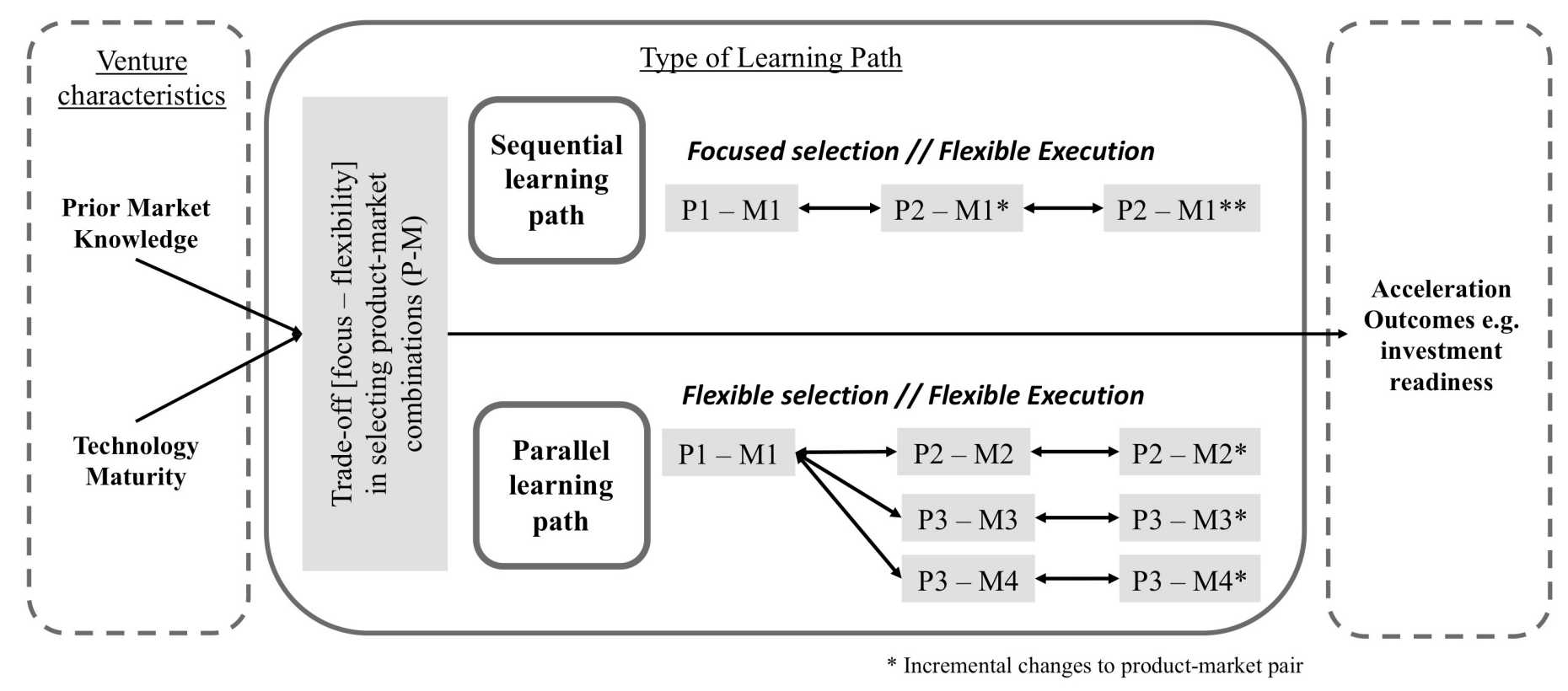Accelerating Deep Tech Ventures
Developing technology-based business opportunities is a complex endeavor. Recent research at ETH's Chair of Entrepreneurship shows that there is no one-size-fits-all approach to accelerating technology businesses.
At ETH's Chair for Entrepreneurship, one of our core research domains is the evolution of technology ventures. Within that research program we have studied and are currently still researching different trajectories that technology ventures take in acceleration programs and the challenges and opportunities thereof.
Forthcoming Book Chapter
In a forthcoming book chapter, researchers at our chair have analyzed the trajectories of 8 deep tech ventures of the Climate KIC Acceleration program. Typical ventures in that program are very early stage and technology-driven, i.e. they develop technology in parallel to heir business opportunities. We find that the more successful ventures engage in a parallel learning path of exploring several different promising market applications at the same time, rather than in a sequentual business experimentation approach.

The parallel experimentation approach allowed the more successful ventures to create a portfolio of options and generate more business connections, which ultimately allowed them to gather more follow-in funding and outperform their peers in the acceleration program. Parallel experimentation also allowes faster to eliminate options that are not technically or market-wise working well. By contrast, those ventures that experiment in more serial fashion, i.e. one idea after the other, are slower in reaching important venture milestones.
We find that the prior knowledge of these accelerator participants impacts their approach. The more market knowledge a participant brought with them, typically their willingness to experiment in parallel fashion and explore multiple options was reduced. They were more entrenched in their original idea, which prevented them to leverage additional opportunities over the program run time.
Implications for Practice
Our findings highlight that an accelerator program for deep tech ventures should be designed to instill flexibility in opportunity selection while minimizing the risks in opportunity execution. That means notions of accelerators as a ‘high throughput’ tool and a ‘one size fits all’ approach as championed by organizations such as the Global Accelerator Network should be revised. Ventures that are not developing typical software and mobile products and ventures that do not exclusively focus on market adoption may require adapted accelerator processes—an important insight for accelerator sponsors and managers.
Future Research
Based on our prior findings, we are currently running two research projects on technology acceleration:
- In collaboration with ETH's Innovation and Entrepreneurship Lab, we are reviewing the development trajectories of a select set of ETH Pioneer Fellows in which we try to better understand the implications of business coaching and the managerial integration of business and technology development depending on the technological readiness of these pojects.
- In a second project we collaborate the the European EIT Global Food Venutee Program to study the impact of mentoring and the intgration of mentor feedback by accelerator participants.
For more information see also the website of the Chair of Entrepreneurship.